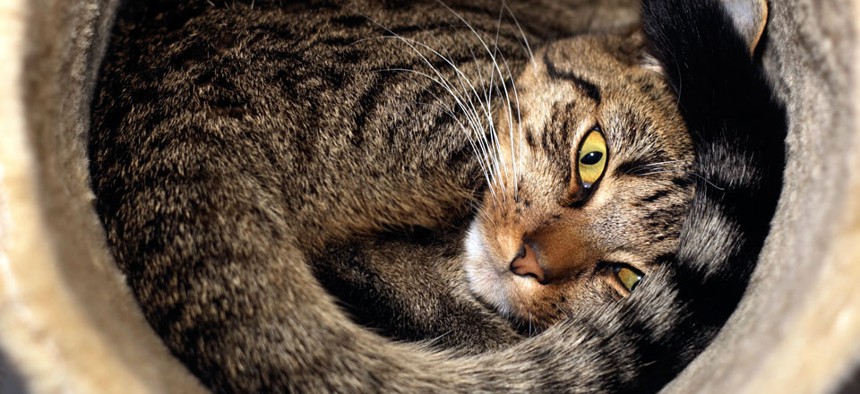How a Cat Helped Pioneer New Postal Service Technology, Circa 1897

Thinkstock
It's like a Dr. Seuss story, only it actually happened.
Before people relied on a theoretical series of tubes for the exchange of interpersonal correspondence, they used tubes of a more literal variety. Starting in 1897 and lasting until 1953, the New York City Post office moved mail across the city using, in part, an intricate system of pneumatic tubes -- tubes that were networked underground at some 4 to 6 feet below the city surface. Tubes that shot enormous canisters full of mail around the city at 35 miles an hour. Tubes that were operated by workers nicknamed "Rocketeers." At the peak of its operation, the tube system carried around 95,000 letters a day -- about 30 percent of all the mail that was routed through the metropolis.
New Yorkers of the Gilded Age knew an exciting technology when they saw one. And, when the tubes opened for tube-ing in the fall of 1897, the occasion was marked by the sending of canisters whose contents were appropriately epic: among them a Bible (wrapped, appropriately, in an American flag); a copy of the Constitution; and a copy of President McKinley's inaugural speech. The items that initiated the new delivery service, however, weren't entirely epic. Postal workers are nothing if not pranksters.
For that reason and others that seem lost to history, the pneumatic tubes of New York City's General Post Office, when they launched in 1897, ended up whisking away ... a cat. Yep. A live cat. A black cat. A probably quite indignant cat. As a general rule, it seems, humans will always find ways to join cats and series of tubes.





